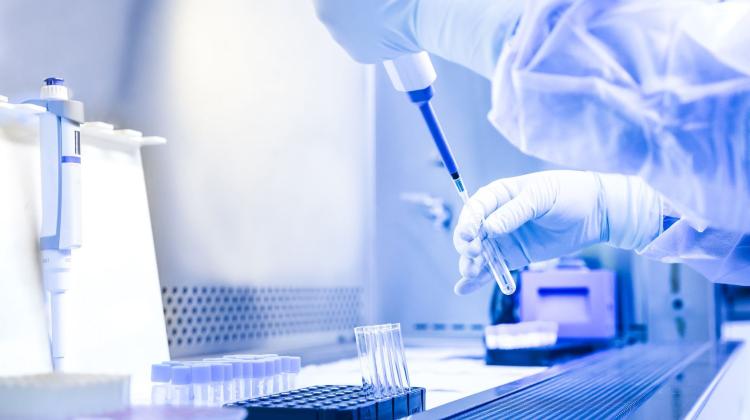Biophysics research for better chemotherapy
 Photo: Fotolia
Photo: Fotolia
New research by Polish scientists can help to fight cancer more effectively with chemotherapy - and make it less harmful to patients. The basis of research is the inhibition of the process of angiogenesis, the formation of new blood vessels by cancer cells.
"If we could inhibit the formation of blood vessels stimulated by cancer cells, then the tumour would not have enough nutrients and oxygen to grow quickly. Tumour growth would be significantly reduced, and we could effectively support the process of treatment of cancer diseases" - said the team leader, Dr. Aneta Balcerczyk from the Department of Molecular Biophysics, University of Lodz.
Angiogenesis is the natural capacity of endothelial cells to form blood vessels. It is very important from the point of view of the formation of the blood system - but also in the process of carcinogenesis, because the capillaries - blood vessels - provide nutrients and oxygen to each cell of our body.
A mutated cell, which initiates cancerous changes (which changes into a tumour over time), needs an increased amount of nutrients and oxygen to function due to the high rate of metabolism and division rate. To ensure an optimal development environment, cancer also uses the process of angiogenesis. It stimulates endothelial cells to proliferate and create a new capillary network - in order to grow quickly.
"Our task was to investigate the role of methylation of histone proteins - that is, proteins that together with DNA form chromatin - in the process of angiogenesis. We have found that the global inhibition of methyltransferase of enzymes responsible for methylation inhibits angiogenesis" - the researcher emphasised.
In her opinion, this is a good prognostic for chemotherapy. "Because if we manage to inhibit, reduce the process of this pathological angiogenesis stimulated by cancer, then chemotherapy would be more effective in combating cancer" - said Dr. Balcerczyk.
Researchers from Łódź used inhibitors, which are characterized by a wide substrate spectrum. These were AMI-1 and AMI-5 compounds responsible for inhibition of arginine and lysine methyltransferases.
"Unfortunately, in addition to the effect where we have observed that inhibition of methyltransferase activity inhibits angiogenesis, we have also observed a number of pathological changes in the nucleus, which is an unfavourable fact that we would like to eliminate. Further research is needed on more specific inhibitors, which would only inhibit angiogenesis and not cause all these nuclear, chromosomal aberrations, in the form of nucleotide bridges or micronuclei" - she explained.
Dr. Balcerczyk noted that the research of from Łódź is part of a global trend of the search for new drugs that would effectively remove or destroy cancer cells - while being less toxic to normal cells.
"For now, our basic research has been performed on cell lines. In the next stage, we would like to move this research to an animal model, and only then will we see how the situation unfolds" - she said.
The researcher emphasised that it is very difficult to move from basic research to drug synthesis and administration to the patient. Dr. Balcerczyk hopes, however, that her research will contribute, albeit to a small extent, to the development of specific drugs - inhibitors that will help inhibit pathological angiogenesis. (PAP)
PAP - Science and Scholarship in Poland
szu/ zan/ kap/
tr. RL
Przed dodaniem komentarza prosimy o zapoznanie z Regulaminem forum serwisu Nauka w Polsce.
















